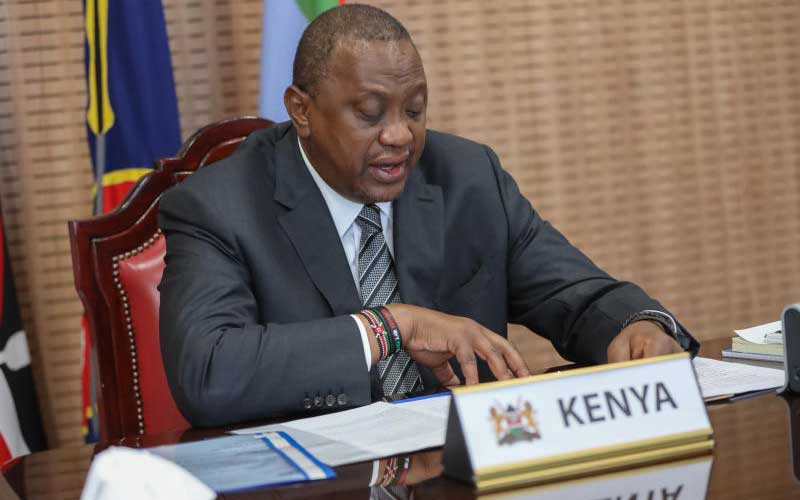
President Uhuru Kenyatta during a virtual meeting of the Aqaba Process on Covid-19 convened by King Abdullah II of Jordan at State House Nairobi on September 02, 2020. [PSCU, Standard]
An aggrieved deputy, a fractured ruling party; a Parliament that is adrift; an opportunistic opposition cheering on as a civil war tears apart the ruling party; a seemingly ineffective bureaucracy biding time to the next elections; a restive public weighed down by an economy that is out of kilter amid a deadly pandemic, rising unemployment, revelations of corruption and unfulfilled promises, but very little time on your hands.